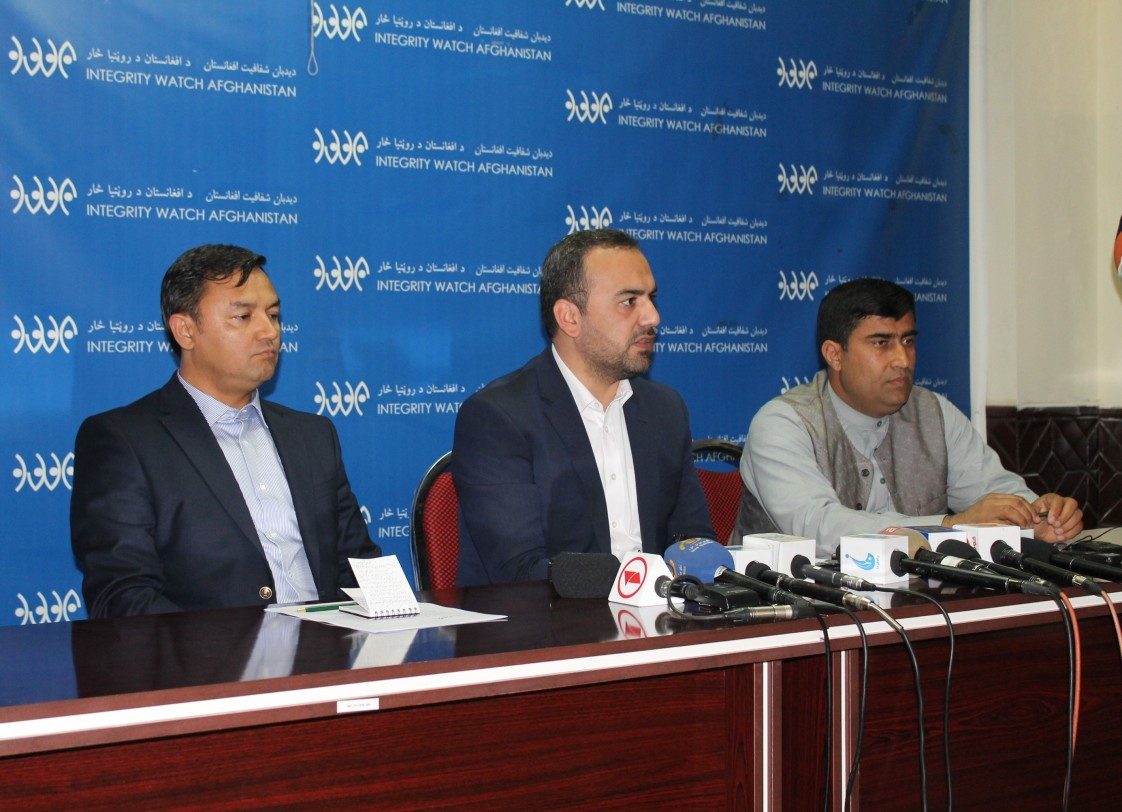Kabul, May 4 2017: A major transparency exercise has revealed that the Ministries of Mines and Finance are failing to provide basic management and oversight of mining revenues, a coalition of civil society organizations has said. The Mining Watch Afghanistan (MWA) coalition warned that the massive gaps and unexplained inconsistencies in the data the government provided to Afghanistan’s 5th Reconciliation Report under the Extractive Industries Transparency Initiative (EITI) threaten to completely undermine the government’s claims to be safeguarding Afghan resources.
“The 5th AEITI report highlights major issues of weak oversight and mismanagement of revenue collection by the Ministry of Mines and Petroleum and the Ministry of Finance.” said Sayed Ikram Afzali, Executive Director of Integrity Watch Afghanistan, speaking on behalf of more than 30 MWA members. “The government seems unable to consistently provide even the most basic data, showing what contracts are active, how much production they have had, and what revenues they have produced. And it is behind this wall of ignorance that our country’s resources are being looted.”
The report highlighted many instances where the government was apparently unable to provide a figure for production or revenues, or other basic information, like the Taxpayer Identification Numbers (TIN) of contract holders or the whereabouts of the mines sites.
In one specific instance, the Northern Coal Enterprise revenue was initially reported to have been AFN 444 million in 1393, dropping to only AFN 4 million in 1394. In the final version of 5th AEITI report that was published on May 1, the revenue from the same company is reported at AFN 754 million in 1393 and AFN 2 billion in 1394. Meanwhile production has been almost steady across the two years from the same coal site: 1.5 million tones and 1.4 million tones.
“This is just one example,” said Afzal Shirzad, representative of WADAN, another member of the coalition, “The government of Afghanistan appears to be unable to account for revenue and production from hundreds of mining contracts – or even to say whether these sites are still active. The credibility of the government’s promises to both the Afghan people and to the international donors is at stake.”
CSOs also raised concerns about way the EITI process had been handled. “The role of the civil society has been increasingly undermined in the 5th report”, said Habiburahman Nang, Executive Director of PETWO, a member of Mining Watch Afghanistan (MWA) coalition. “Requests from civil society organizations that the government should be asked to comment on the gaps and
discrepancies in the data were met with no response, and the Secretariat released the report for approval with an extremely short period for review – less than 24 hours for a complex and important document.”
The CSOs called for the government to put in place basic reforms to strengthen transparency and oversight, including amending the mining law to make contract publication a condition of validity, establishing a single fully transparent account to be used for all extractive revenues, taking action against illegal mining, and strengthening the capacity of the ministry of mines in the next six months.
“The government has appointed a promising new Minister for Mines, and have made some commitments on reform which we welcome,” Afzali concluded. “We stand ready to support them in this battle – but the time has come when they must deliver with actions and not just words.”
Afghan government “unable to provide basic management of mining revenues,” says civil society
Recent News |


